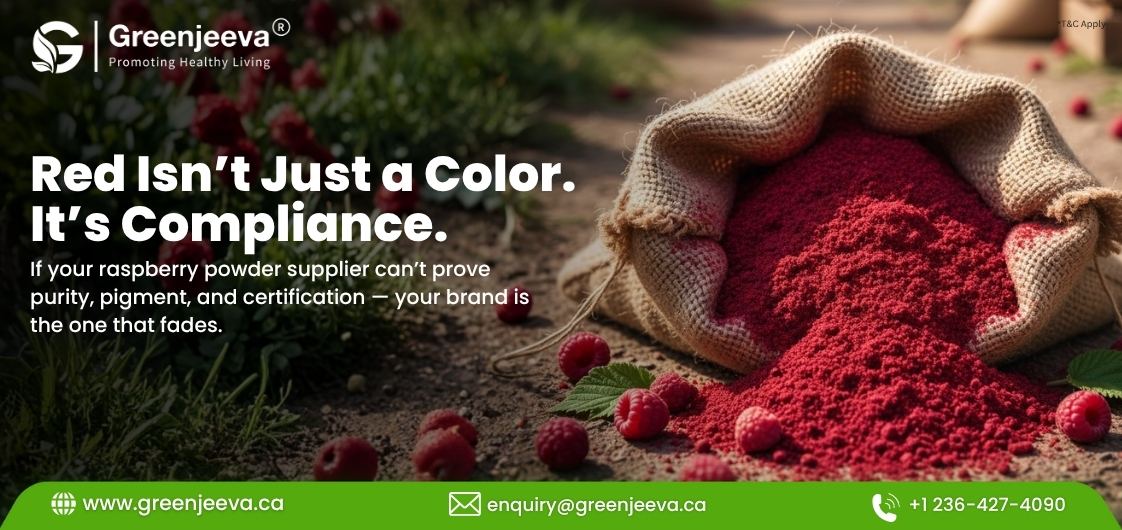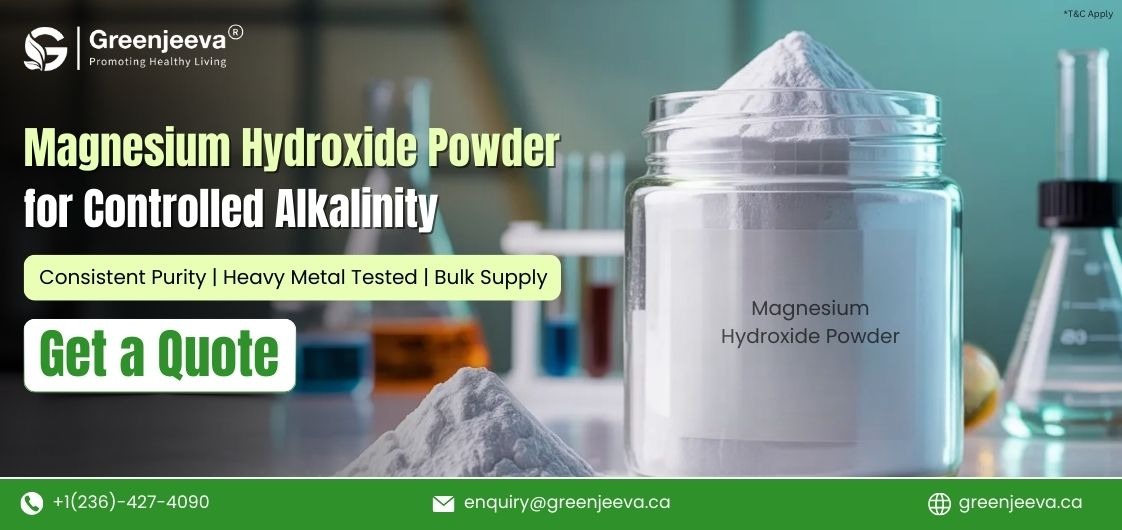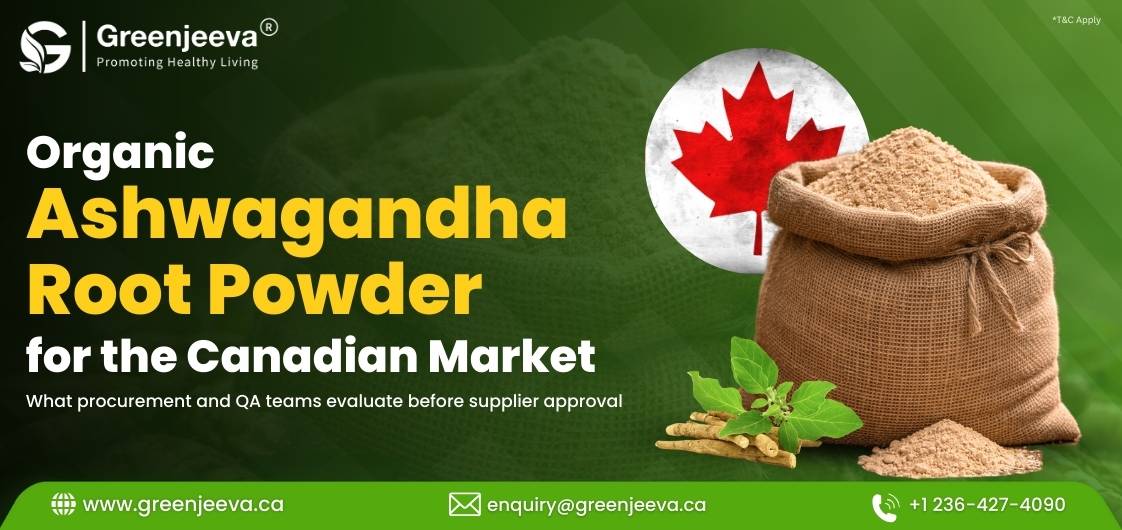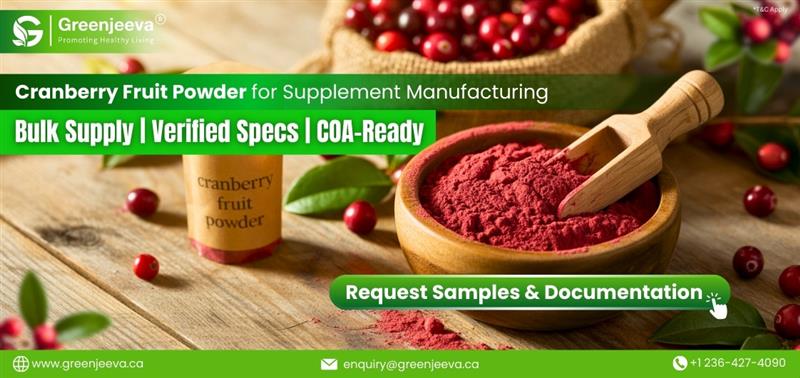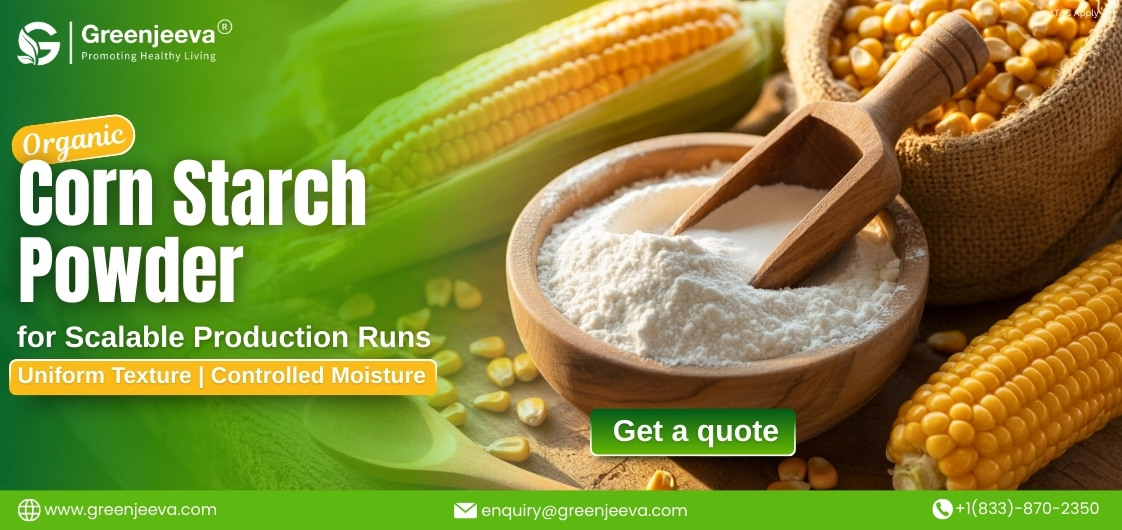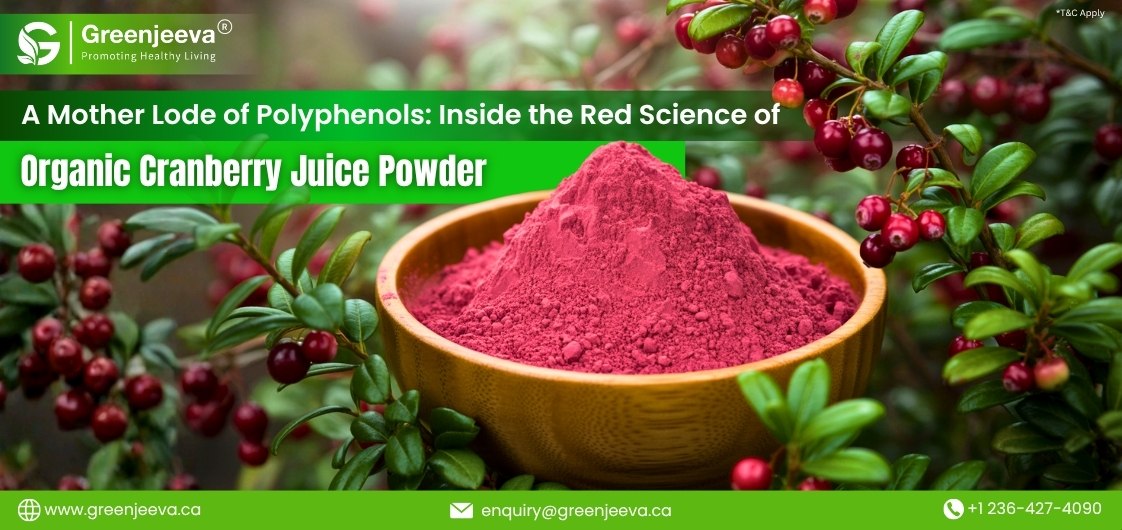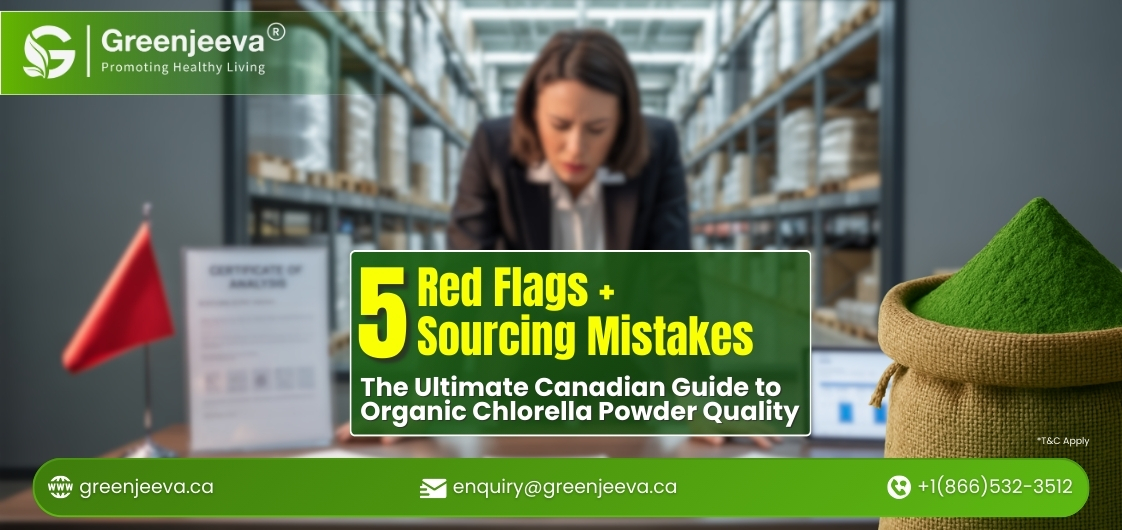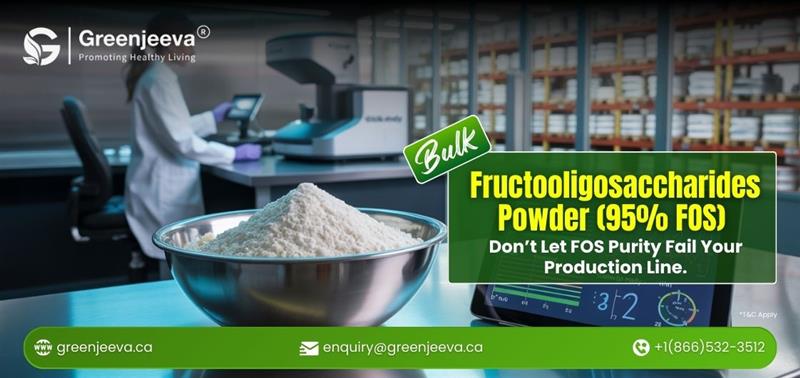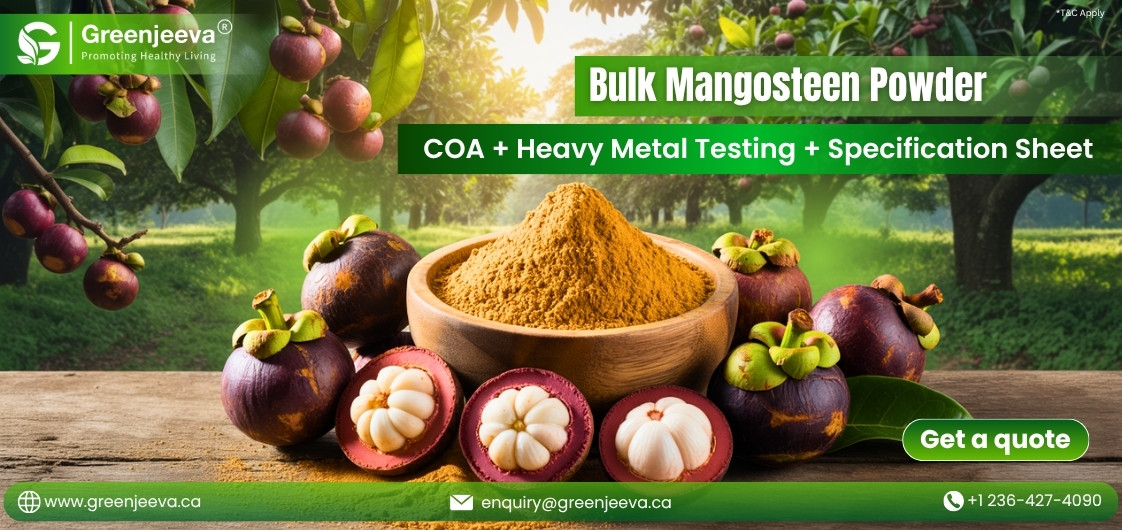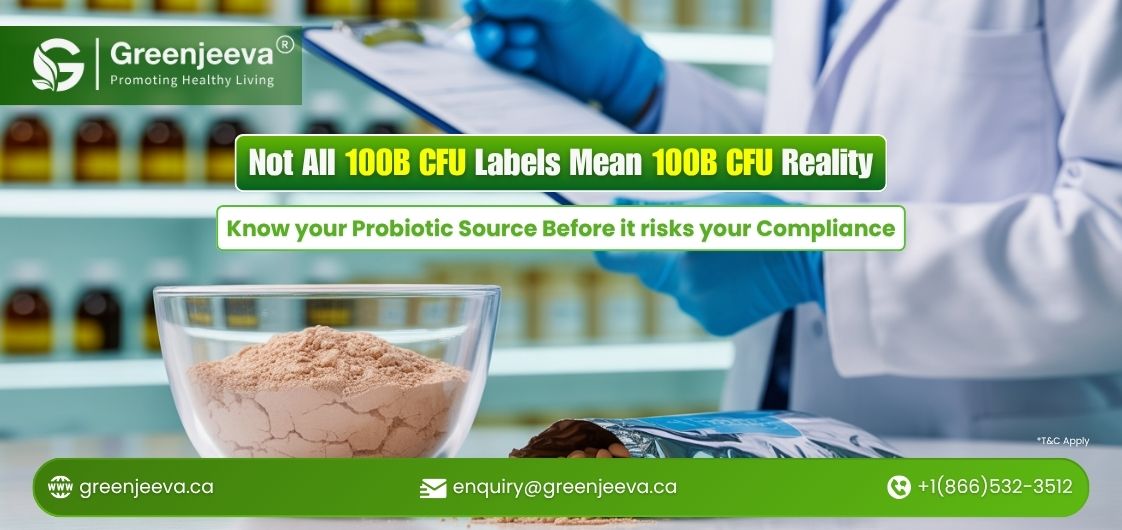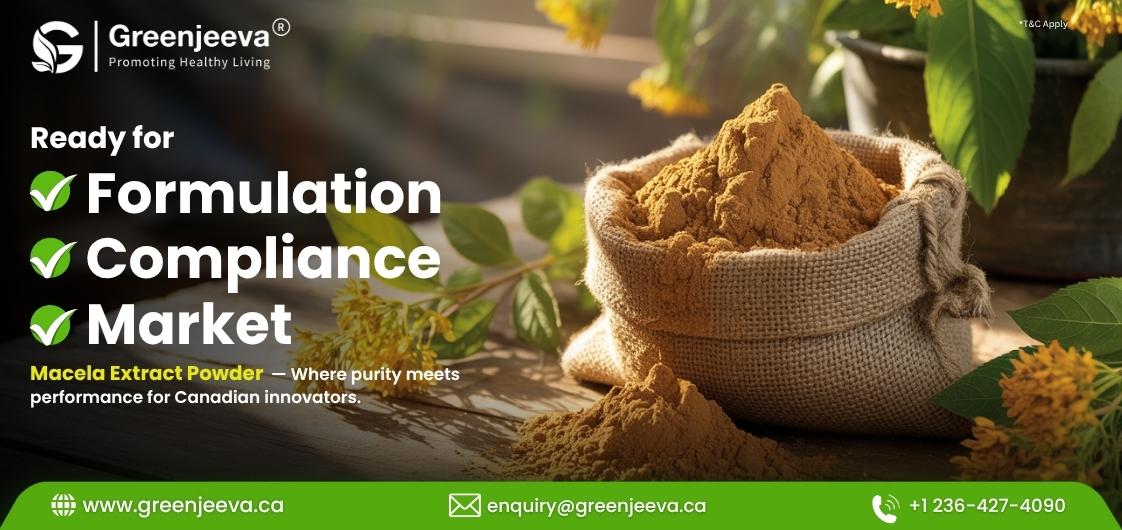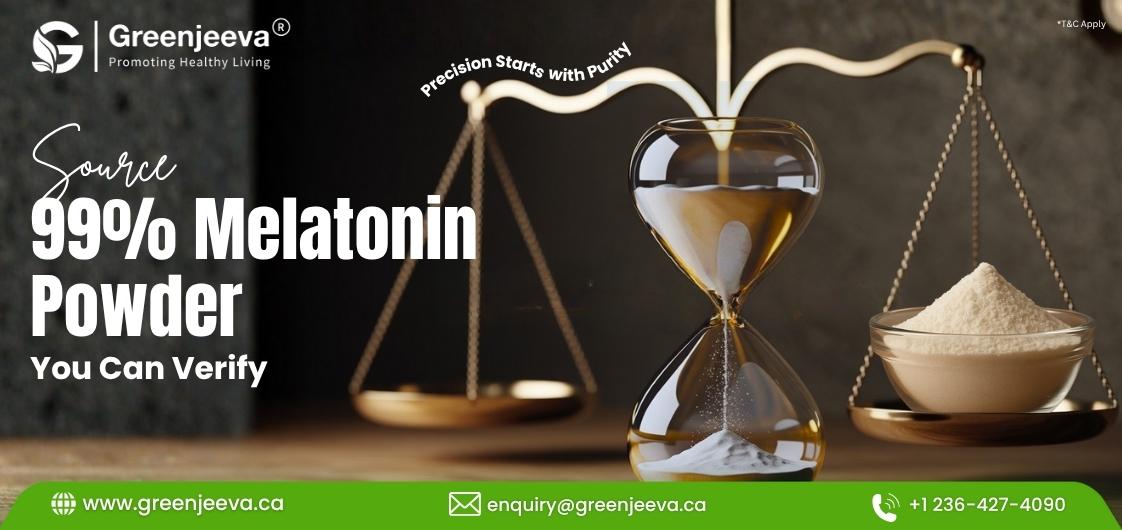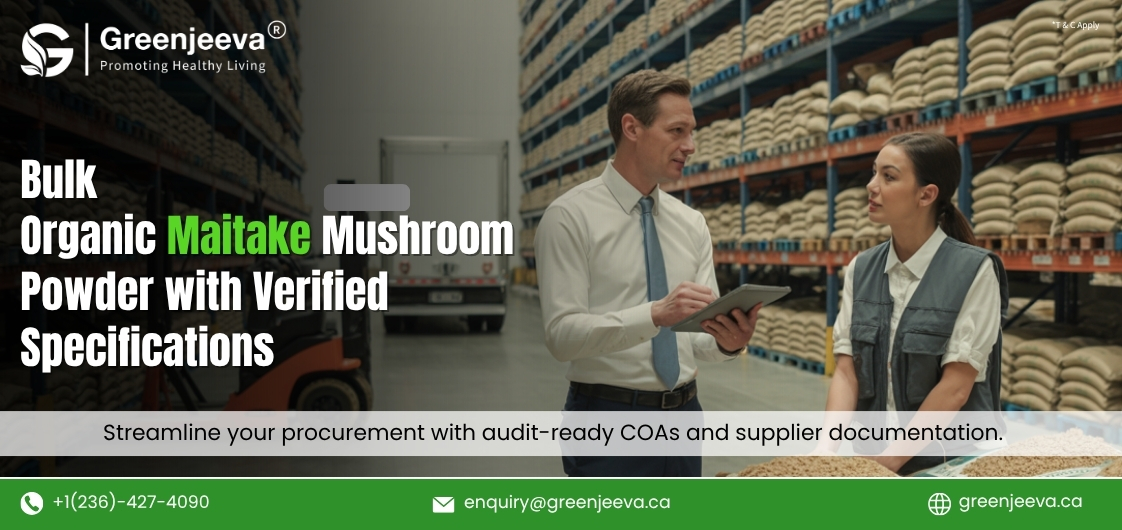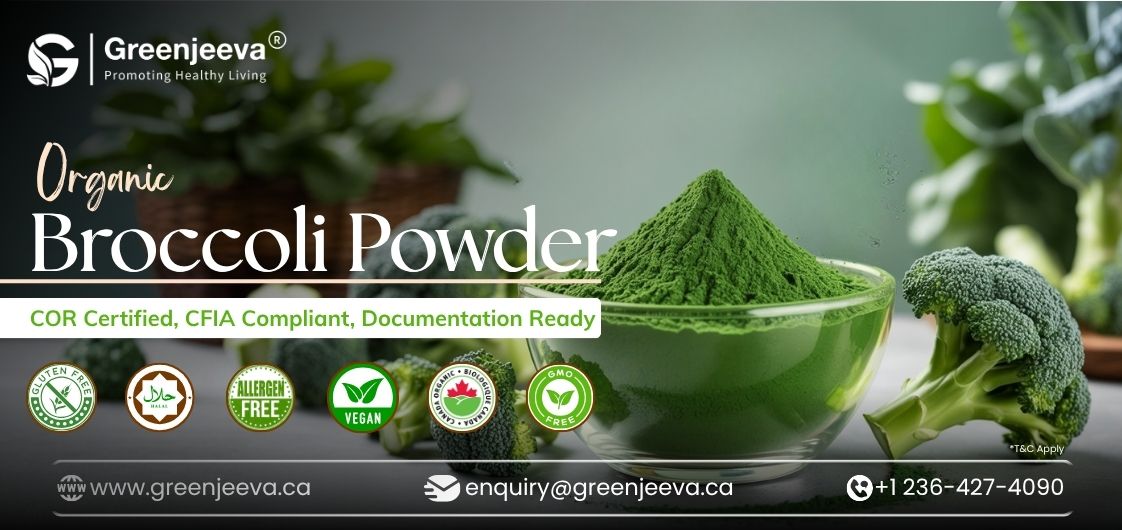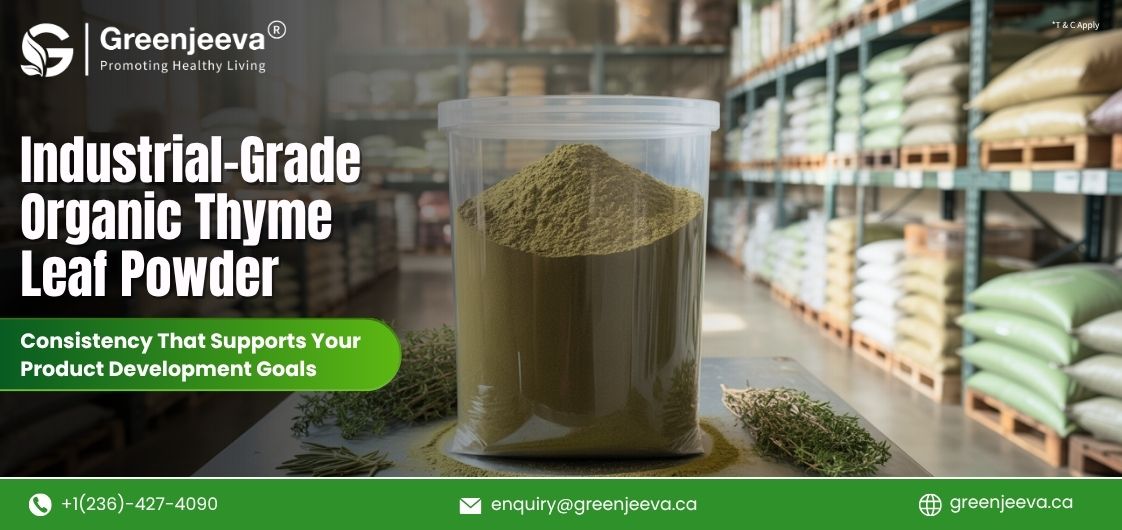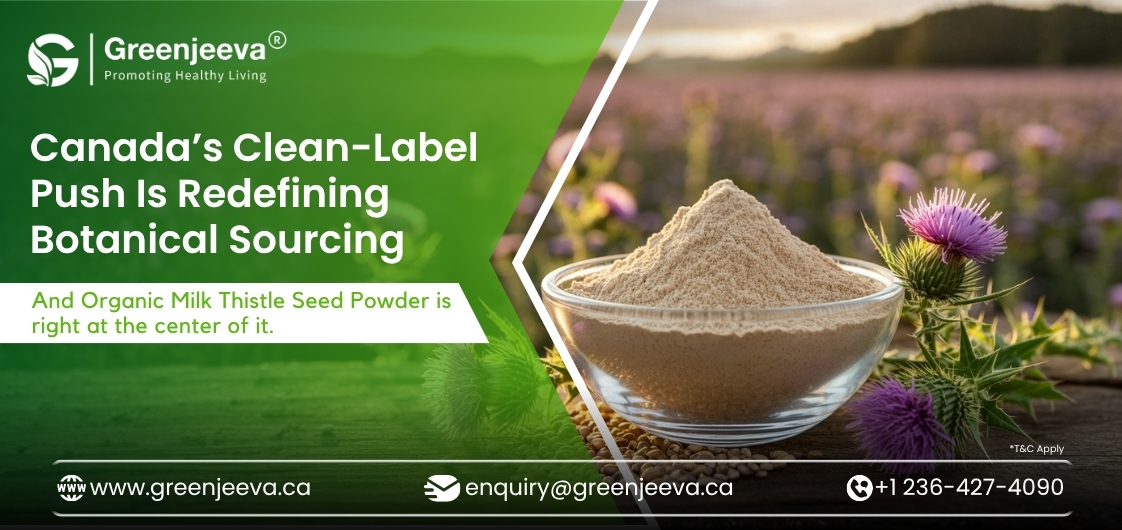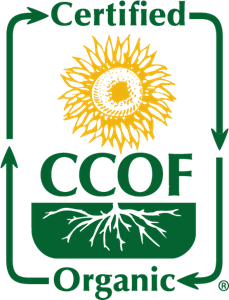The first time you open a drum of organic raspberry powder, the color does the talking. A luminous pink, alive with antioxidants. A hue that says fresh harvest, not artificial tint. But here’s the truth Canadian sourcing managers already know not every “organic red” is real.
Across the North American ingredient trade, the demand for authentic, certified, data-backed bulk organic raspberry powder Canada has skyrocketed. Yet behind those glowing colors often hide inconsistencies, unverified certificates, oxidized batches, and powders that fade before your formula ever hits production.
In Canada, where CFIA compliance and COR certification set the standard, the new rule of thumb is simple: if your organic raspberry powder supplier Canada can’t prove it, your brand can’t claim it.
Let’s explore what the smartest Canadian buyers now look for before signing a purchase order.
The Certification Behind the Color
“Organic” isn’t a color claim; it’s a compliance story. Under the Canadian Organic Regime (COR), any imported organic ingredient must be certified by a CFIA-recognized body. If your supplier’s certificate doesn’t show equivalency with COR or USDA, it’s a red flag.
Quick Buyer Check:
– COR equivalency mention (or USDA-accredited certifier)
– Product listed as Rubus idaeus fruit powder
– Valid certificate number and expiry date
– Traceable batch-to-certificate linkage
Think of certification not as a formality but as your insurance policy for audit day, especially when you’re vetting an organic raspberry ingredient supplier with global reach.
2. Color Integrity: Nature’s Signature, Not a Marketing Choice
In the world of fruit powders, color is chemistry. When organic raspberry powder is processed at the right temperature and speed, its anthocyanins, the natural pigments that give berries their red vibrance, remain intact. But when overheated or poorly stored, that vivid pink fades to dull brown, and your formulation loses both huge and antioxidant potential.
If the red looks tired, the nutrition is too. That’s why Canadian R&D leads increasingly request color consistency data, either CIELAB values or visual reference photos per batch.
What to ask suppliers:
– What is your drying method for certified organic raspberry powder? (Freeze-dried beats spray-dried for retention.)
– Do you use color reference testing for every batch?
– Can I see a side-by-side comparison of the last three lots of organic raspberry powder?
These are exactly the sorts of questions you’d ask from a supplier of non-GMO organic raspberry powder bulk, especially when you’re aiming for premium, clean-label formulations.
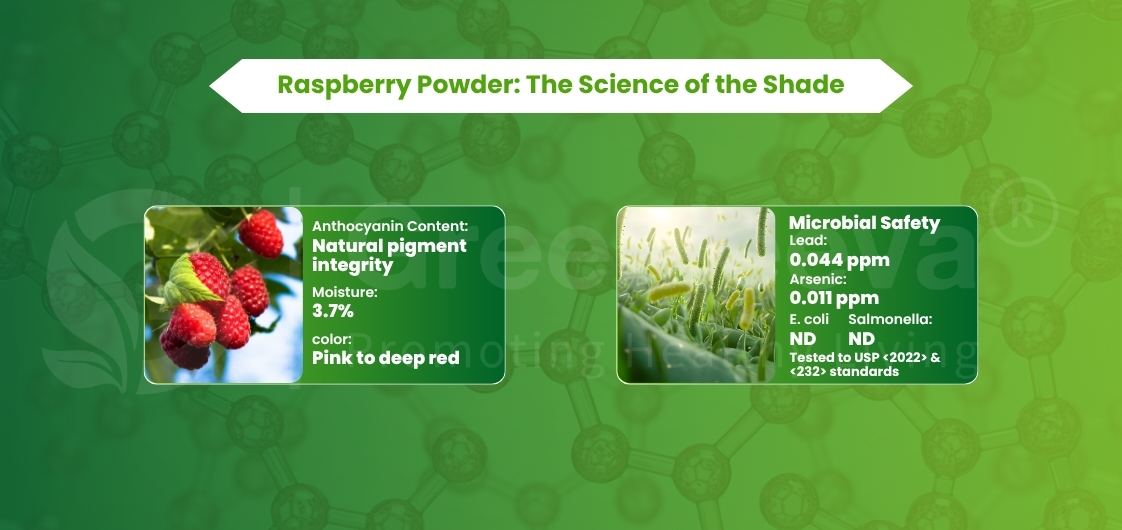
3. Purity Is Not Claimed , It’s Calculated
Every bag of certified organic raspberry powder should come with proof. No promises.
A true COA lists the numbers that matter:
– Moisture ≤ 6.0 % → Shelf stability
– Ash ≤ 5 % → Minimal adulteration
– Heavy metals within USP <232> limits
– Negative for E. coli & Salmonella
– Verified by ISO-accredited lab
Canadian buyers, especially those serving nutraceutical and beverage brands, now demand data not just for compliance, but for brand storytelling. Because in 2025, the clean-label conversation isn’t about absence (“no chemicals”), it’s about evidence (“here’s our” proof”), particularly important when placing orders for clean-label organic raspberry powder Canada wholesale.
4.Traceability: From Berry Fields to Blending Rooms
Most high-quality raspberry powders originate from the fertile highlands of China or Eastern Europe , but the real journey begins after harvest.
Leading suppliers can now show full traceability through digital documentation chains:
– Harvest season → Processing plant → Packaging date → Export log
– Lot-specific organic certificates
– Clean transport records for COR import validation
Canadian QA auditors increasingly rely on traceability reports, a feature that serious exporters now provide proactively.
Ask before you buy:
“Can I see the chain-of-custody for this batch?”
If the supplier hesitates, that’s your answer, especially if you were evaluating an organic raspberry juice powder bulk supplier instead of whole fruit powder.
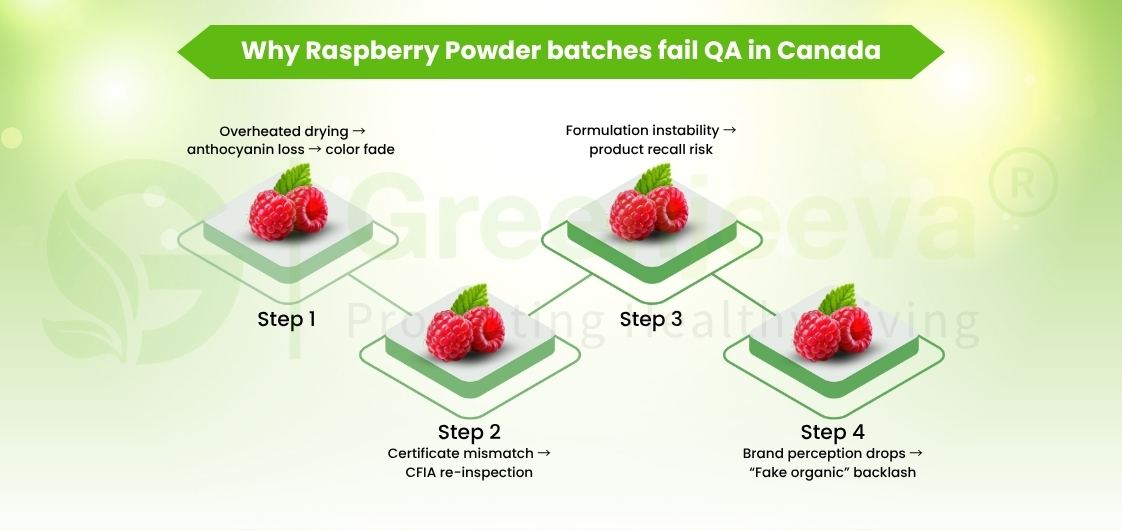
5. Aroma and Antioxidants The Invisible Tests
While color tells part of the story, the aroma whispers the rest. Real organic raspberry powder carries a tart-sweet scent, light, fruity, and clean. Synthetic blends often smell too strong or oddly floral. Behind that aroma is chemistry again: carotenoids, flavonoids, anthocyanins, all indicators of natural integrity.
Some suppliers even provide HPLC or ORAC reports to demonstrate antioxidant levels. If your organic raspberry powder supplier can share that data, they’re not just selling a color; they’re selling a functional compound, just what you’d expect from an allergen-free organic raspberry powder bulk with top-tier QC.
6. Supplier Responsiveness: The Hidden KPI
Ask any procurement head what they value most after quality, and they’ll say it without hesitation: speed. Because in an era where Canadian logistics already stretch timelines, your supplier’s response speed can define your market launch.
Here’s what differentiates great suppliers:
– Instant COA and COR documentation upon request
– Sample dispatch within 48 hours
– Transparent batch data and spec sheets on file
– Dedicated compliance team familiar with CFIA & COR frameworks
In short: if you wait longer for documents than it takes to make a smoothie, you’re talking to the wrong raspberry powder supplier , whether you’re sourcing a few drums or negotiating a multi-year contract for organic raspberry powder food-grade quality.
Why Canadian Formulators Are Replacing Synthetic Reds
Organic raspberry powder has become a quiet disruptor in Canadian food and beverage labs.
Here’s why:
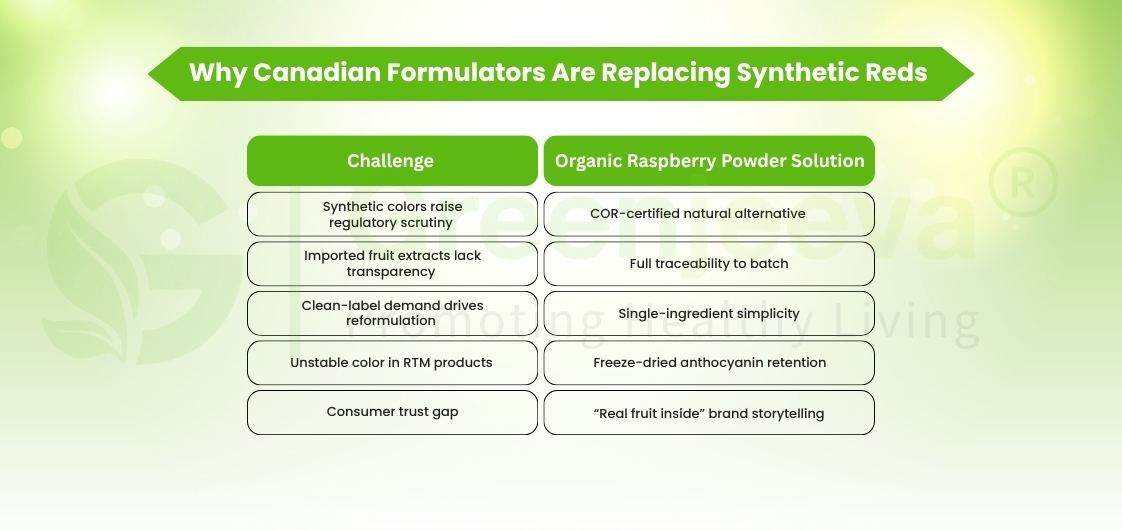
And because raspberry powder also contributes subtle tartness and fiber, it enhances taste and texture, a rare win for both R&D and marketing.
Compliance Isn’t Optional, It’s Opportunity
For Canadian brands exporting to the U.S. or Europe, compliance documentation isn’t a box to tick , it’s a passport to new shelves.
To stay CFIA-ready:
– Verify your supplier’s COR-recognized certification
– Retain COA + Certificate of Origin for each lot
– Ensure organic equivalency mentions for dual-market selling
The best certified organic raspberry powder suppliers will anticipate these needs before you even ask , positioning themselves not just as vendors, but as strategic ingredient partners.
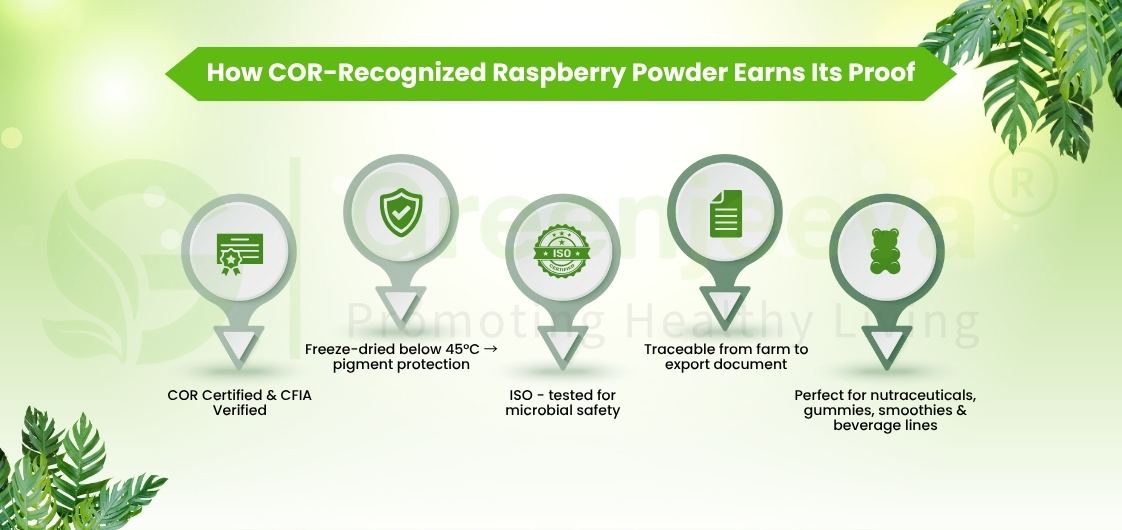
The Canadian Buyer’s Red List (and Green Checklist)
Avoid:
– Neon-red powders (often colored)
– Suppliers without COR equivalency proof
– Missing or outdated COAs
– Ambiguous “organic” claims without certifier name
Approve:
– COR-certified supplier with active documentation
– Consistent natural color and aroma
– Third-party tested purity and safety data
– Responsive communication and local support
In Summary: Redefining the Meaning of “Organic Red”
The next generation of Canadian formulators isn’t chasing color, they’re chasing credibility. They want ingredients that can prove their story. Powders held their hue because they were treated with care. Certificates that withstand an audit because they were earned, not printed. That’s the true color of clean-label integrity and Organic Raspberry Powder in bulk. It’s not just pink; it’s proof.
**The Food and Drug Administration has not evaluated these statements. This product is not intended to diagnose, treat, cure, or prevent any disease.**


